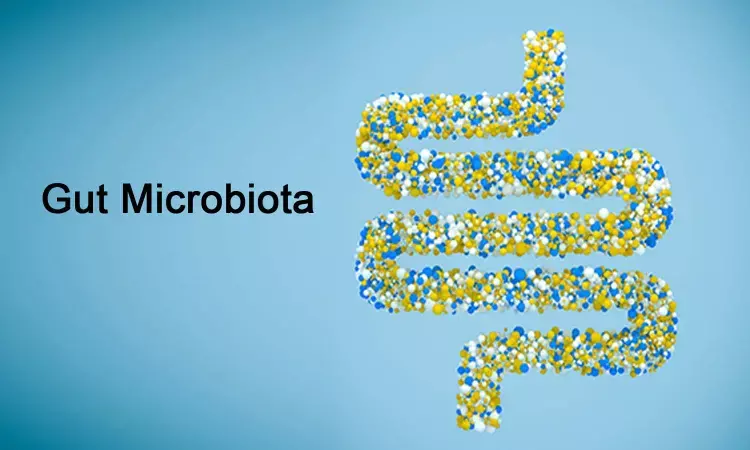- Home
- Medical news & Guidelines
- Anesthesiology
- Cardiology and CTVS
- Critical Care
- Dentistry
- Dermatology
- Diabetes and Endocrinology
- ENT
- Gastroenterology
- Medicine
- Nephrology
- Neurology
- Obstretics-Gynaecology
- Oncology
- Ophthalmology
- Orthopaedics
- Pediatrics-Neonatology
- Psychiatry
- Pulmonology
- Radiology
- Surgery
- Urology
- Laboratory Medicine
- Diet
- Nursing
- Paramedical
- Physiotherapy
- Health news
- Fact Check
- Bone Health Fact Check
- Brain Health Fact Check
- Cancer Related Fact Check
- Child Care Fact Check
- Dental and oral health fact check
- Diabetes and metabolic health fact check
- Diet and Nutrition Fact Check
- Eye and ENT Care Fact Check
- Fitness fact check
- Gut health fact check
- Heart health fact check
- Kidney health fact check
- Medical education fact check
- Men's health fact check
- Respiratory fact check
- Skin and hair care fact check
- Vaccine and Immunization fact check
- Women's health fact check
- AYUSH
- State News
- Andaman and Nicobar Islands
- Andhra Pradesh
- Arunachal Pradesh
- Assam
- Bihar
- Chandigarh
- Chattisgarh
- Dadra and Nagar Haveli
- Daman and Diu
- Delhi
- Goa
- Gujarat
- Haryana
- Himachal Pradesh
- Jammu & Kashmir
- Jharkhand
- Karnataka
- Kerala
- Ladakh
- Lakshadweep
- Madhya Pradesh
- Maharashtra
- Manipur
- Meghalaya
- Mizoram
- Nagaland
- Odisha
- Puducherry
- Punjab
- Rajasthan
- Sikkim
- Tamil Nadu
- Telangana
- Tripura
- Uttar Pradesh
- Uttrakhand
- West Bengal
- Medical Education
- Industry
Gut microbiota a major player in modulating successful weight loss, finds study

Washington, D.C. - Gut microbiota influences the ability to lose weight in humans, according to new research. The findings were published this week in mSystems, an open-access journal of the American Society for Microbiology.
"Your gut microbiome can help or cause resistance to weight loss and this opens up the possibility to try to alter the gut microbiome to impact weight loss," said lead study author Christian Diener, Ph.D., a research scientist at the Institute for Systems Biology in Seattle, Washington.
To conduct their research, Dr. Diener and colleagues focused on a large cohort of individuals who were involved in a lifestyle intervention study. Instead of a specific diet or exercise program, this intervention involved a commercial behavioral coaching program paired with advice from a dietician and nurse coach. The researchers focused on 48 individuals who lost more than 1% of their body weight per month over a 6 to 12 month period and 57 individuals who did not lose any weight and had a stable body mass index (BMI) over the same period. The researchers relied on metagenomics, the study of genetic material recovered from blood and stool samples. The individuals analyzed blood metabolites, blood proteins, clinical labs, dietary questionnaires and gut bacteria in the two groups.
After controlling for age, sex and baseline BMI, the researchers identified 31 baseline stool metagenomic functional features that were associated with weight loss responses. These included complex polysaccharide and protein degradation genes, stress-response genes, respiration-related genes, cell wall synthesis genes and gut bacterial replication rates. A major finding was that the ability of the gut microbiome to break down starches was increased in people who did not lose weight. Another key finding was that genes that help bacteria grow faster, multiply, replicate and assemble cell walls were increased in people who lost more weight.
"Before this study, we knew the composition of bacteria in the gut were different in obese people than in people who were non-obese, but now we have seen that there are a different set of genes that are encoded in the bacteria in our gut that also responds to weight loss interventions," said Dr. Diener. "The gut microbiome is a major player in modulating whether a weight loss intervention will have success or not. The factors that dictate obesity versus nonobesity are not the same factors that dictate whether you will lose weight on a lifestyle intervention."
Research has already shown that if you change your diet, you can alter the composition of bacteria in your gut. According to Dr. Diener, if someone has a composition of gut bacterial genes that confers resistance to weight loss, then perhaps you can alter their diet to shift to a composition that would help them lose weight.
Hina Zahid Joined Medical Dialogue in 2017 with a passion to work as a Reporter. She coordinates with various national and international journals and association and covers all the stories related to Medical guidelines, Medical Journals, rare medical surgeries as well as all the updates in the medical field. Email: editorial@medicaldialogues.in. Contact no. 011-43720751
Dr Kamal Kant Kohli-MBBS, DTCD- a chest specialist with more than 30 years of practice and a flair for writing clinical articles, Dr Kamal Kant Kohli joined Medical Dialogues as a Chief Editor of Medical News. Besides writing articles, as an editor, he proofreads and verifies all the medical content published on Medical Dialogues including those coming from journals, studies,medical conferences,guidelines etc. Email: drkohli@medicaldialogues.in. Contact no. 011-43720751


